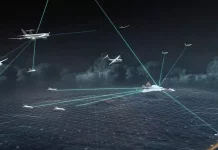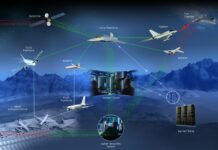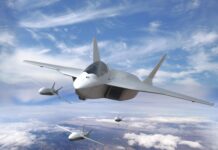Indra has had all of the proposals it has led or been involved in selected in the second call of the European Defence Fund (EDF), the Spanish company announced on 29 June 2023.
With a total of 14 projects selected, a third of the 41 approved by the European Commission, Indra ranks among the leading European companies. These 14 projects, two of which it leads, cover all of the company’s key technological areas.
The projects amount to EUR 500 M of the total amount of EUR 832 M allocated by the European Commission (EC) in the 2022 call from the EDF.
The company has now had 52 defence projects funded by the EC since 2018, with EUR 164 M in grants and direct contracts for Indra and an additional EUR 80 M for more than a dozen Spanish companies participating in them, reaffirming Indra’s role as a driving force in the Spanish defence industry.
“Indra is playing a decisive role in the development of new technologies that will mark the future of the sector,” the company’s CEO, José Vicente de los Mozos, was quoted as saying in a company press release. “Thanks to the support of the European Commission, we’ll be able to shorten the lead time to bring to market innovative solutions to improve the operability and accelerate the digitalisation of the Spanish armed forces and those of other European countries. The ‘Europe of Defence’ needs Spain’s industrial development, and this development necessarily entails Indra’s national leadership.”
Indra will thus see the main lines of its research and development supported and continuity given to initiatives it has been working on, which were launched in the first call of the European Defence Industrial Development Programme (EDIDP) – the precursor of the European Defence Fund – in 2019, “thus confirming the excellent progress of the projects and the trust that the Commission and the industry have placed in the company”, Indra stated in a press release.
Indra is co-ordinating the continuation of two important projects that were launched in 2019 in connection with two Permanent Structured Cooperation (PESCO) programmes led by the Spanish Ministry of Defence: the development of the future strategic command and control system for the European Union (EC2), which will enable the EU External Action Service to achieve the level of ambition set by the Strategic Compass approved by the EU; and the development of an electronic attack system (REACT II) capable of ensuring freedom of action for allied aircraft in environments with significant air defence assets.
The company will also reinforce its presence in the major consortia that are developing the future capabilities and systems with which Europe will ensure its sovereignty and capacity for intervention in theatre of operations with a growing degree of digitalisation, increasingly intelligent platforms and solutions that can counter emerging threats.
Examples of this include Indra’s participation at the core team level in the Odin’s Eye project, which is developing an early warning system for ballistic missile defence (BMD); the Covert and Advanced multi-modal Sensor Systems for tArget acquisition and reconnAissance (CASSATA) project, which will develop sensors designed not to give away their position; TIRESYAS, which is developing the future generation of onboard and air defence radars, capable of dealing with new threats such as hypersonic missiles and drone swarms; the LAnd TActical Collaborative Combat (LATACC) project, which will reinforce collaborative combat capabilities in the ground environment; and the FEDerated Ecosystem of euRopean simulation Assets for Training and decision Support (FEDERATES) project, which is developing a collaborative simulation environment capable of supporting training and decision-making support, conducted in a co-ordinated manner by the armed forces of several EU member states.
Indra, together with other European leaders in air traffic control and air defence, will also develop the concepts that will enable the full integration of military flights into the Single European Sky.
The company is additionally reinforcing its leadership in the highly critical field of cyber defence with significant involvement in the Newsroom and EUropean Cyber and INFormation warfare toolbox (EUCINF) projects, which will enhance cyber situational awareness and provide cyber armies with new response tools in this field. These two initiatives come in the wake of the European Cyber Situational Awareness Platform (ECYSAP) and EU-GUARDIAN cyber defence projects led by Indra that were launched in previous calls.
Indra is also part of the consortia that will analyse the development of intelligence, surveillance and reconnaissance satellite constellations (SPIDER); establish the standards and architectures for operational co-ordination and information exchange between allied vessels (E-NACSOS); design the future European medium transport aircraft, which is intended to complement the A-400; and increase European strategic autonomy by developing advanced electronic micro-circuits for defence (EPICURE).
Meanwhile, Indra is also Spain’s national co-ordinator of the Franco-German-Spanish Future Combat Air System (FCAS) programme, which the company described as “the most ambitious defence programme launched in Europe to date”.
Peter Felstead












